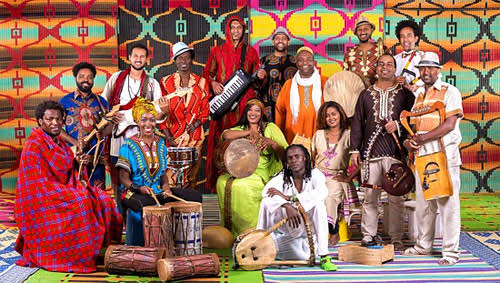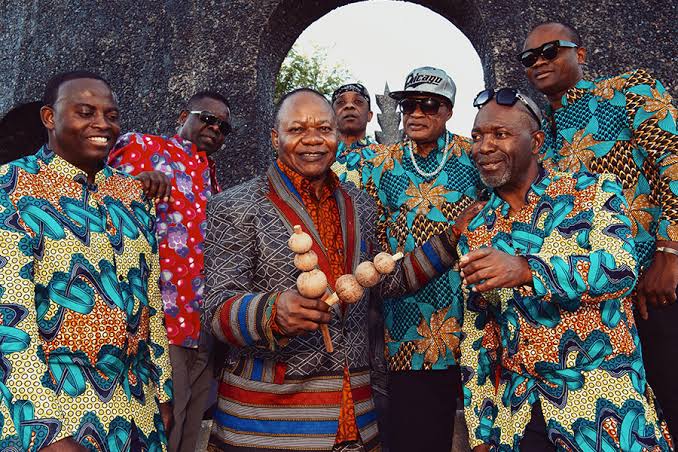African music is a diverse and vibrant art form that has had a significant impact on music throughout the world. From traditional rhythms to contemporary sounds, African music has a rich history and has influenced numerous genres including jazz, blues, and rock. In this article, we will explore the history of African music, the different styles that have emerged over time, and the impact it has had on music around the globe.
Brief History of African Music
African music dates back thousands of years, with the earliest known evidence of musical instruments found in Egypt around 4000 BCE. The music of Africa has been shaped by its history of colonization, slavery, and cultural exchange with other regions. African music has also been heavily influenced by religion, with many traditional African music styles incorporating elements of spirituality and ritual.
One of the most significant influences on African music was the transatlantic slave trade. As Africans were forcibly brought to the Americas, they brought with them their music, which became a vital part of the culture of their new homes. This led to the creation of new musical genres like jazz and blues, which were heavily influenced by African rhythms and melodies.
Traditional African Music
Traditional African music is diverse, with many different styles and rhythms. Some of the most well-known styles include:
1. West African Music: This style of music is characterized by complex rhythms played on percussion instruments like the djembe and the talking drum. It is heavily influencedby the griot tradition, which is a group of musicians, storytellers, and poets who pass down oral histories and cultural traditions through music. The griots are revered members of their communities, and their music plays an important role in cultural ceremonies and events.

2. Central African Music: This style of music is known for its use of polyrhythms and call-and-response vocals. Instruments commonly used in Central African music include drums, xylophones, and the likembe. The likembe, also known as the thumb piano, is a popular instrument in Central African music and is played by plucking metal keys attached to a wooden board.

3. South African Music: South African music is known for its use of vocal harmonies and group singing. It has been heavily influenced by the Western musical traditions brought over by colonizers, as well as by traditional Zulu and Xhosa music. South African music played a significant role in the anti-apartheid movement, with musicians like Miriam Makeba and Hugh Masekela using their music to raise awareness of the struggle for freedom and equality.

4. East African Music: This style of music is characterized by its use of stringed instruments like the oud and the lyre, as well as percussive instruments like the darbuka and the dumbek. It is heavily influenced by Arabic and Indian music, which were brought over by traders and travelers. East African music is known for its intricate melodies and rhythms,and has had a significant impact on the development of other genres like taarab and benga.

Contemporary African Music
Contemporary African music is just as diverse as traditional African music, with many different styles and influences. Some of the most popular contemporary African music styles include:
1. Afrobeats: Afrobeats is a fusion of traditional African rhythms and Western pop music. It originated in Nigeria in the 2000s and has since spread throughout Africa and beyond. Some of the most well-known Afrobeats artists include Wizkid, Davido, and Burna Boy. Afrobeats has become a global phenomenon, with African artists collaborating with artists from around the world to create new and exciting music.

2. Highlife: Highlife is a genre of music that originated in Ghana in the early 20th century. It is characterized by its use of horns, guitars, and percussion instruments, and is heavily influenced by Western jazz and swing music. Highlife has had a significant impact on the development of other African music genres like soukous and juju.

3. Soukous: Soukous is a style of dance music that originated in Congo in the 1950s. It is characterized by its use of electric guitars, brass instruments, and complex rhythms. Soukous has had a significant impact on the development of other African music genres like zouk and kizomba.

4. Kwaito: Kwaito is a genre of music thatoriginated in South Africa in the 1990s. It is characterized by its use of electronic instruments and a slow, steady beat. Kwaito has been heavily influenced by hip-hop and house music, and has become a popular genre throughout Africa. It has also been used as a form of political protest, with artists using their music to address social and economic issues in their communities.

Impact on Global Music
African music has had a significant impact on music around the world, with many genres being heavily influenced by African rhythms and melodies. Some of the most well-known examples include:
1. Jazz: Jazz is a genre of music that originated in the United States in the early 20th century. It is heavily influenced by African rhythms and melodies, particularly those from West Africa. Jazz has had a significant impact on the development of other genres like blues and rock. Many famous jazz musicians, like Duke Ellington and Louis Armstrong, were inspired by African music and incorporated it into their own music.
2. Blues: Blues is a genre of music that originated in the United States in the late 19th century. It is heavily influenced by African-American music, particularly the call-and-response vocals and rhythms of traditional African music. Blues has had a significant impact on the development of rock and roll, and has influenced countless artists throughout the world. Musicians like B.B. King and Muddy Waters were known for their blues-inspired music.
3. Rock: Rock music has been heavily influenced byAfrican rhythms and melodies, particularly those from West Africa. Many of the foundational elements of rock music, such as the use of electric guitars and drums, can be traced back to African music traditions. Rock has had a significant impact on popular music around the world, and continues to be a popular genre today. Many famous rock musicians, like Jimi Hendrix and Carlos Santana, were influenced by African music and incorporated it into their own music.
4. Hip-Hop: Hip-hop is a genre of music that originated in the United States in the 1970s. It is heavily influenced by African-American music, particularly the rhythms and melodies of funk and soul music. Hip-hop has become a global phenomenon, with artists from around the world incorporating elements of hip-hop into their own music. African hip-hop artists like Sarkodie and Nasty C have gained international recognition and have helped to showcase the diversity and richness of African music to a wider audience.

African music is a rich and diverse art form that has had a significant impact on music around the world. From traditional rhythms to contemporary sounds, African music continues to inspire and influence artists from all over the globe. It is important to recognize and value the contributions of African musicians and to support the growth and development of African music in all its forms.
African music has not only had an impact on music but also on other forms of art and culture. African music has influenced dance, visual art, fashion, and literature. It hasalso played an important role in social and political movements, with musicians using their music to address issues like poverty, injustice, and inequality.
In recent years, African music has gained more recognition and popularity on the global stage. African artists like Burna Boy, Wizkid, and Davido have won international awards and collaborated with artists from around the world. This has helped to showcase the diversity and richness of African music to a wider audience.
However, despite its popularity and influence, African music is still often overlooked and undervalued. Many African musicians struggle to make a living from their art and lack access to resources and opportunities. There is a need for greater support and recognition for African music and its artists.
One way to support African music is to promote and attend African music festivals. These festivals provide a platform for African musicians to showcase their talents and connect with audiences from around the world. Some of the most well-known African music festivals include the Cape Town Jazz Festival in South Africa, the Festival au Desert in Mali, and the Sauti za Busara festival in Tanzania.
Another way to support African music is to listen to and purchase African music. Streaming services like Spotify and Apple Music make it easy to discover and listen to African music from a wide variety of genres and artists. Purchasing music directly from African artists or record labels also helps to support the growth and development of African music.
In conclusion, African music is a rich and vibrant art form that has had a significant impact on music around the world. From traditional rhythms to contemporary sounds, African music continues to inspire and influence artists from all over the globe. It is important to recognize and value the contributions of African musicians and to support the growth and development of African music in all its forms. By doing so, we can ensure that this important part of our cultural heritage continues to thrive and evolve for generations to come.

